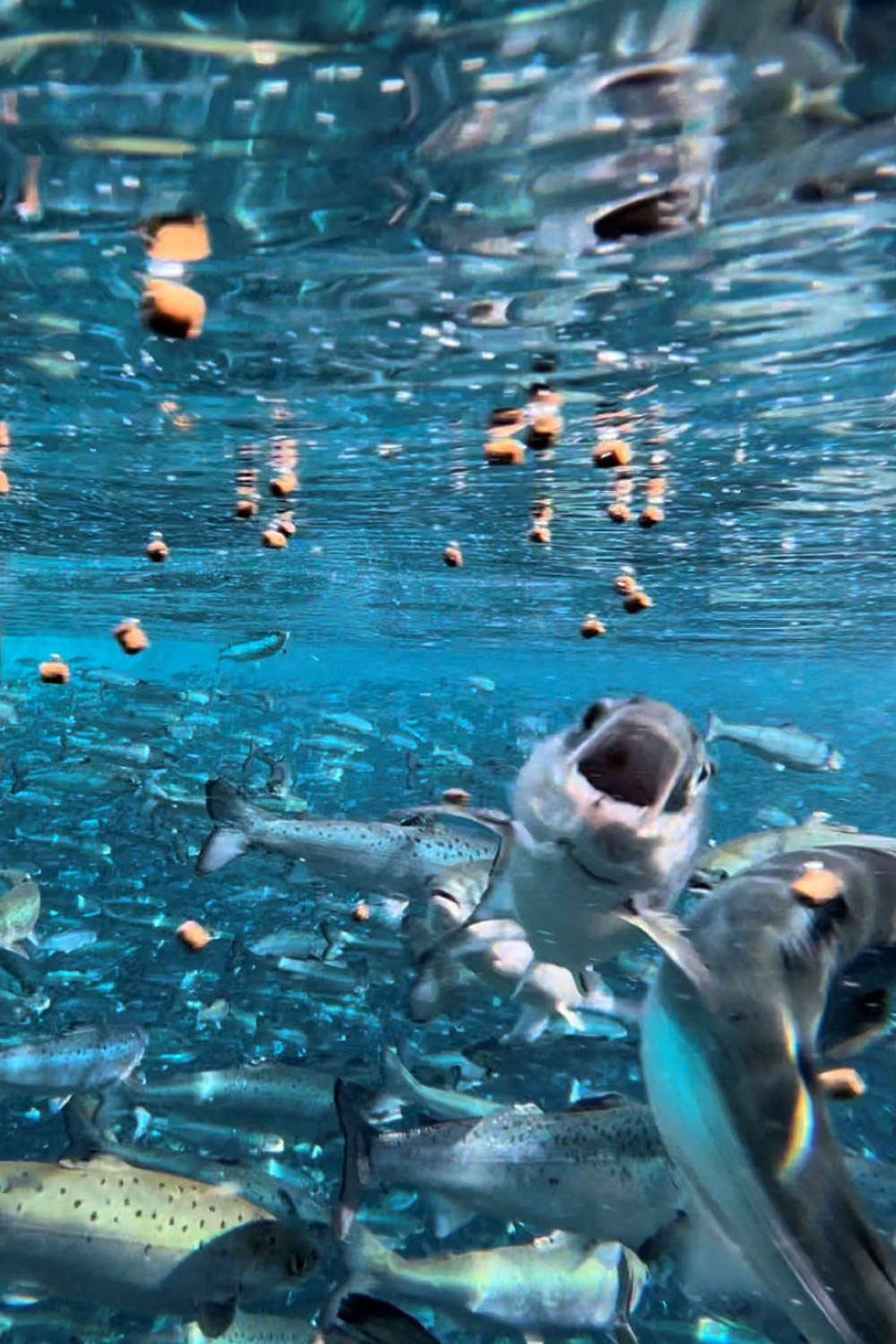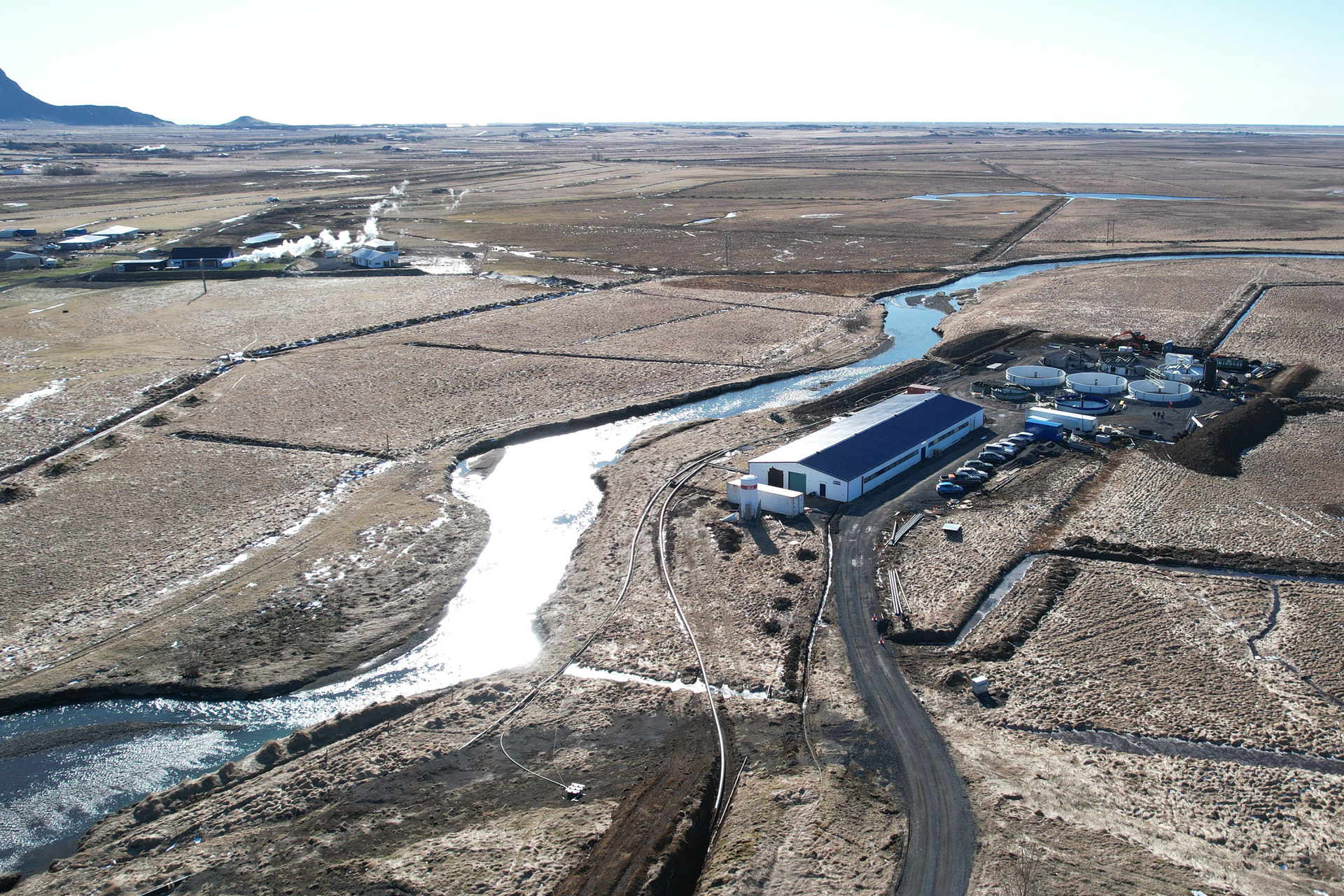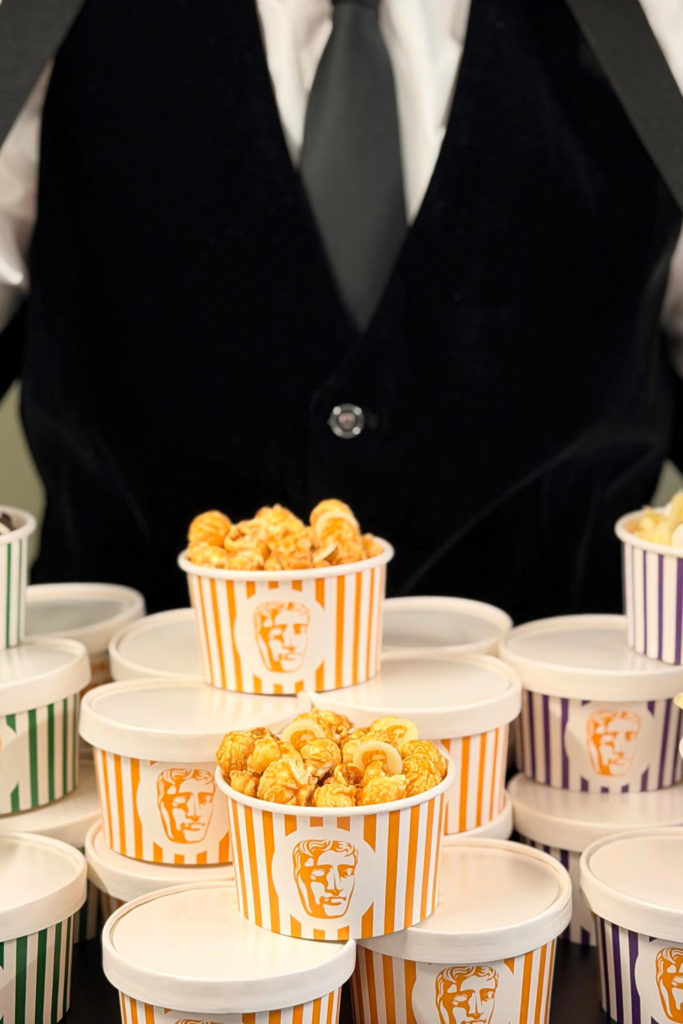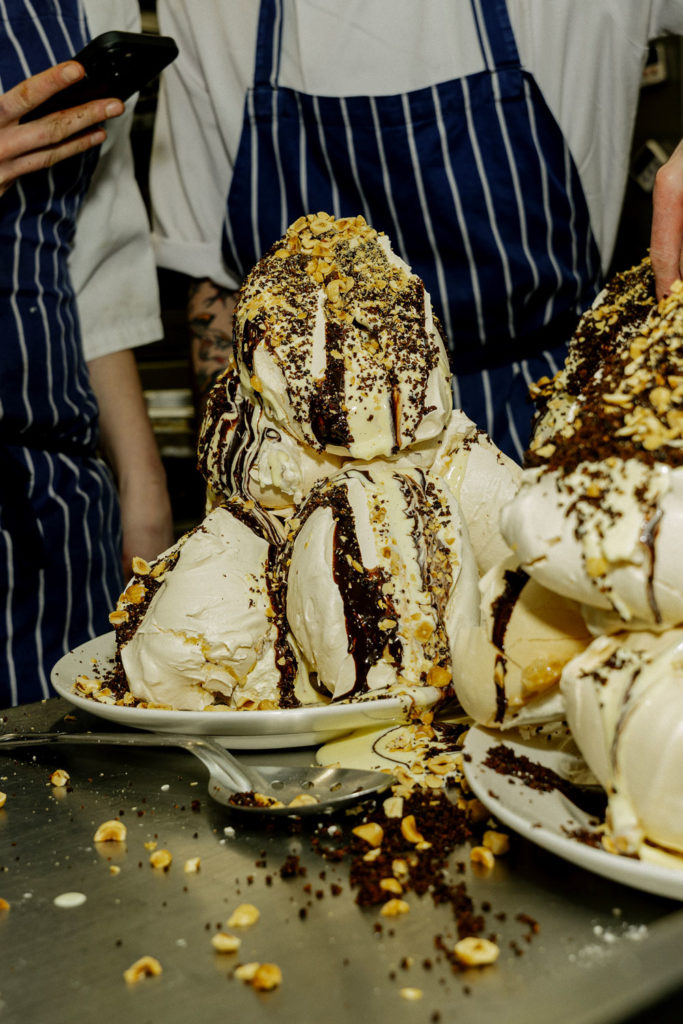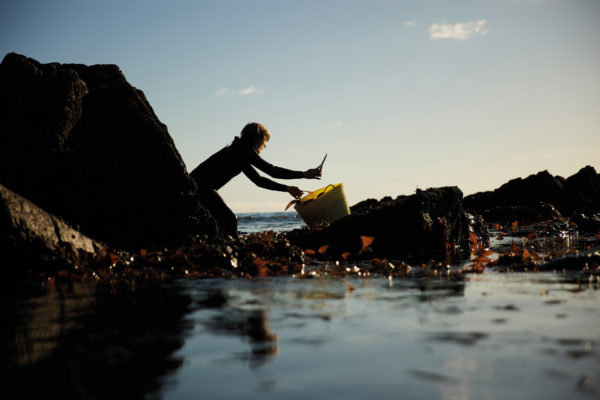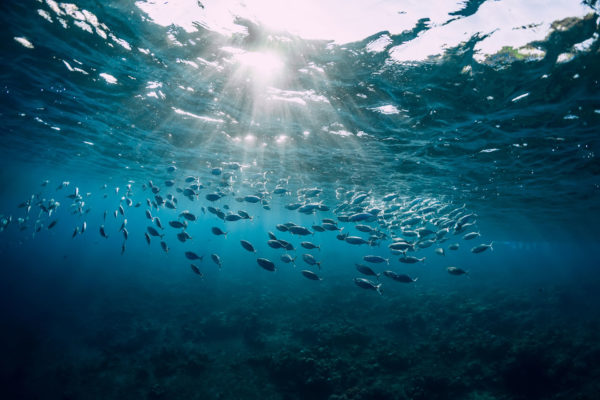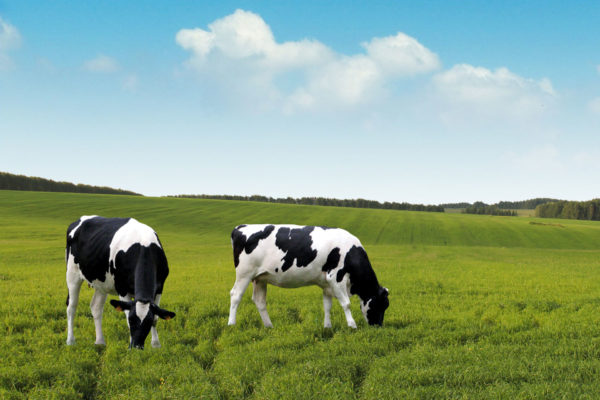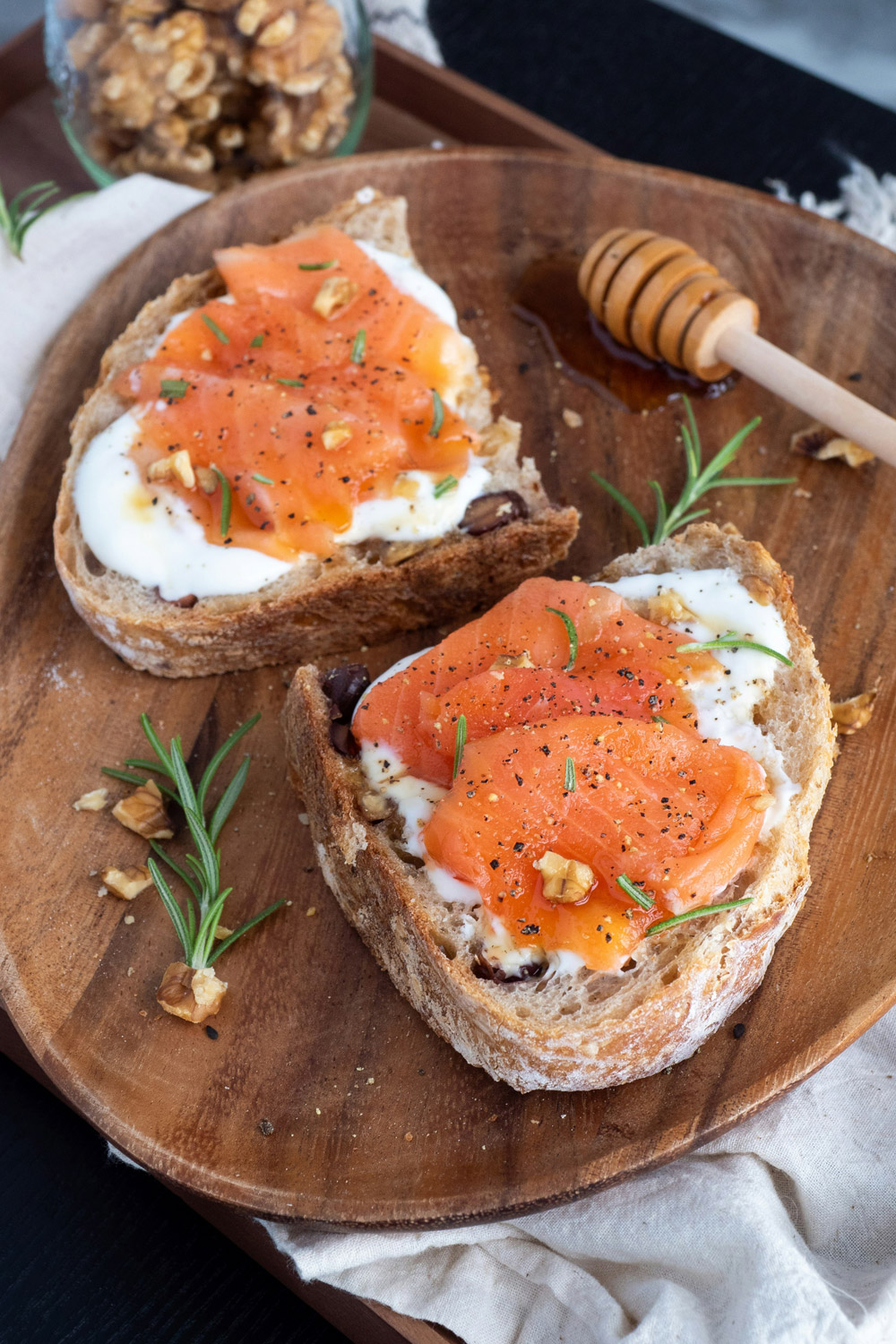
Does Sustainable Salmon Exist?
By
5 months ago
It's one of the UK's most consumed types of fish, but salmon farming is a contentious topic
Is there such a thing as responsibly farmed salmon? Farmer, writer and activist Jenny Jefferies explores why we must move away from open net farm fishing – and the pioneering alternatives.
What Is Open Net Farm Fishing?
Almost two years ago, Icelandic musician Björk collaborated with Catalan music artist Rosalía on a charity single entitled ‘Oral’. She is currently donating the rights to the income generated to stop open net fish farming in Iceland.
Why is this such an important cause? Open net fish farming is a method of salmon farming which is known to contribute to the destruction of the environment and ecosystem, along with creating undesired conditions for the salmon. This method is now defined by releasing unfiltered waste into the oceans within which the chemicals and plastics are lethal to other types of sea life and also includes sea lice, pests, disease, and overall, a negative impact upon the environment.
This industry also loses a huge amount of farmed salmon from the net pen, and the genetic mixing of the escapees with wild salmon result in devastating consequences on the wild fish; as their ability to survive in nature, shaped by 10,000 years of evolution, is severely compromised and may eventually lead to their extinction.
Salmon farming in the UK has long been contested by environmentalists and discerning, informed consumers here too, however, the volume of salmon sold in the UK is now up to 54,342 tonnes and is famously one of the big five species eaten, along with prawns, tuna, haddock and cod.
As an industry leading example, organic online grocer Abel & Cole announced earlier this year that it will no longer sell open net sea farmed salmon and has instead made the switch to Icelandic and Norwegian, ‘land-based’, responsibly-farmed salmon. This is believed now to be one of the most sustainable ways to enjoy the UK’s most popular fish.
‘At Abel & Cole, we’re committed to putting the environment, biodiversity and great taste at the heart of what we do,’ says Ed Ayton, sustainability and ethics advisor at Abel & Cole. ‘Faced with increased concerns around the potentially catastrophic impact to local biodiversity and wild fish stock, we felt we could no longer support sea-farmed salmon in any form. We’ve been working hard behind-the-scenes to find a more sustainable option for our customers to continue enjoying their favourite fish.
‘Our new land-based, responsibly-farmed salmon suppliers offer a sharp contrast to the images we often see coming from open-net farms. We’re proud to be the first to say no to open-net sea-farmed salmon and offer a more responsible way forward for salmon farming.’
How Can Salmon Farming Be Responsible?
Powered by 100 percent renewable energy, revolutionary salmon farm First Water – which was founded in 2017 and based in Þorlákshöfn, Iceland – utilises Iceland’s unique combination of abundant renewable energy and clear water supply, which is sourced through constantly replenished boreholes. The boreholes are essentially underground wells of seawater that have been naturally filtered through layers of lava. This hybrid flow-through system maintains the water quality, without expending energy on temperature control, so the salmon lives, feeds and grows in optimum and consistent conditions, with low mortality rates.
Using the latest technology and innovation, land-based responsibly-sourced salmon farming offers increased levels of control over the water conditions, temperature, feeding and lighting. This means that the water is kept crystal clear and the fish in near-perfect condition due to the ability to monitor elements such as food waste and filtration levels. The farm also uses feed from environmentally certified suppliers and the salmon are free of pesticides, hormones and antibiotics. On these new land-based farms, these aforementioned threats are nearly eradicated; the mortality rate is brought down to the agricultural standard of between one and three percent.
Go back forty years when Wester Ross Fisheries, now Mowi Scotland Ltd, was founded, Scotland’s oldest independent salmon farm. Building upon its premium, welfare-centric practices and withstanding strong community ties, this salmon farm represents high quality. Scottish aquaculture looks hopeful, and indeed significant. Nevertheless, ambitious ‘land-based’ projects closer to home on the Isle of Lewis or Shetland could be Scotland’s first land-based salmon farm, with a target capacity of 90,000 or 45,000 metric tonnes per year.
As we all consider our own carbon footprint and ethical consumption of certain foods (if we can afford to), salmon is becoming increasingly a hot topic of contentious opinion and conversation. The NHS (National Health Service) advises that a ‘healthy, balanced diet should include at least two portions of fish per week’ – but most of us are not eating this much. Maybe in the UK we need to keep up with our mainland European counterparts and start trialling the nutritional value of these differently farmed food products: conventionally farmed food ‘versus’ regeneratively farmed food, especially with fish and seafood, as possibly it is the quality of the food rather than the quantity that is now fast becoming important.
Through folklore, music, literature, art and culture, the eternal survival of salmon around the world has become a symbol of regeneration, self-sacrifice, perseverance, knowledge and wisdom. With scientific innovation, business investment, and collaborative and ethical retail, Björk herself has mused before now, ‘There could be a happy ending.’


